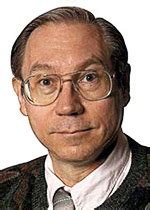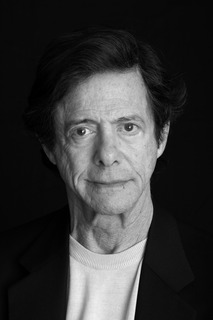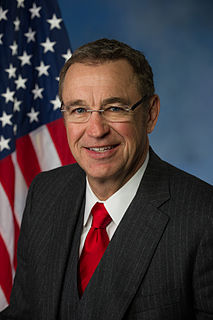A Quote by Michael Bloomberg
Whatever you may think of the proposed mosque and community center, lost in the heat of the debate has been a basic question: Should government attempt to deny private citizens the right to build a house of worship on private property based on their particular religion?
Related Quotes
We hold that the ownership of private property is the right and privilege of every American citizen and is one of the foundation stones upon which this nation and its free enterprise system has been built and has prospered. We feel that private property rights and human rights are inseparable and indivisible. Only in those nations that guarantee the right of ownership of private property as basic and sacred under their law is there any recognition of human rights.
[T]he crucial question is not, as so many believe, whether property rights should be private or governmental, but rather whether the necessarily 'private' owners are legitimate owners or criminals. For ultimately, there is no entity called 'government'; there are only people forming themselves into groups called 'governments' and acting in a 'governmental' manner. All property is therefore always 'private'; the only and critical question is whether it should reside in the hands of criminals or of the proper and legitimate owners.
What I do know is, in little more than 30 years, we have gone from a nation where the “quiet enjoyment” of one’s private property was a sacred right, to a day when the so-called property “owner” faces a hovering hoard of taxmen and regulators threatening to lien, foreclose, and “go to auction” at the first sign of private defiance of their collective will ... a relationship between government and private property rights which my dictionary defines as “fascism.”
[I]t is impossible for those, who believe in the truth of Christianity, as a divine revelation, to doubt, that it is the especial duty of government to foster, and encourage it among all the citizens and subjects. This is a point wholly distinct from that of the right of private judgment in matters of religion, and of the freedom of public worship according to the dictates of one's conscience.
One ideological claim is that private property is theft, that the natural product of the existence of property is evil, and that private ownership therefore should not exist... What those who feel this way don't realize is that property is a notion that has to do with control - that property is a system for the disposal of power. The absence of property almost always means the concentration of power in the state.
And the desire to own property, to take for ourselves things which in no way belong to us, does not stop short at the sun. The air is already bought and sold as a commodity, by health resorts. And what of water? Or waterpower? Why should the earth be parceled out into private hands? Is it any different from the sun? No; the earth belongs to the people who live on it. God intended it for them, but it has been taken over by private individuals. Privare means to steal. Thus private property is stolen property - property stolen from God and from humankind!
It has been the fashion to speak of the conflict between human rights and property rights, and from this it has come to be widely believed that the use of private property is tainted with evil and should not be espoused by rational and civilized men... the only dependable foundation of personal liberty is the personal economic security of private property. The Good Society.
The difference between [socialism and fascism] is superficial and purely formal, but it is significant psychologically: it brings the authoritarian nature of a planned economy crudely into the open. The main characteristic of socialism (and of communism) is public ownership of the means of production, and, therefore, the abolition of private property. The right to property is the right of use and disposal. Under fascism, men retain the semblance or pretense of private property, but the government holds total power over its use and disposal.
If history could prove and teach us anything, it would be the private ownership of the means of production as a necessary requisite of civilization and material well-being. All civilizations have up to now been based on private property. Only nations committed to the principle of private property have risen above penury and produced science, art, and literature. There is no experience to show that any other social system could provide mankind with any of the achievements of civilization.
Unlike the Marxists, the Nazis did not advocate public ownership of the means of production. They did demand that the government oversee and run the nation's economy. The issue of legal ownership is secondary; what counts is the issue of control. Private citizens, therefore, may continue to hold titles to property-so long as the state res...erves to itself the unqualified right to regulate the use of their property.

































